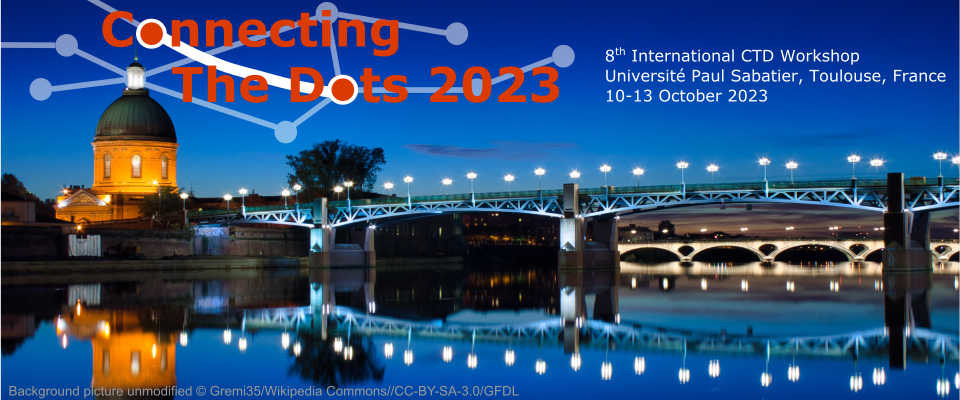Novel approaches and algorithms, and theoretical analysis
Mathematical evaluation of pattern recognition problems, fitting tracks beyond classical Kalman filters, novel detector concepts, and effects of noise. Topics include physics-aware machine-learning techniques applied to charged particle track reconstruction; the use of precise timing information to perform 4D pattern recognition and vertexing; differentiable techniques; tracking across a wide range of energies, or in dense or complex environments; and new algorithms to find tracks in high-throughput and/or low-latency environments.
Architectures and techniques for real-time tracking and fast track reconstruction
Architecture efficient algorithms applied to high-throughput and high-performance computing systems including hardware accelerator-based computing (e.g., GPGPUs, FPGAs, TPUs), portability library approaches, vectorization, and multithreading. Software and firmware implementations including for parallel and discrete pattern recognition, exploration of new hardware architectures. Algorithms that resolve throughput limitations of current approaches. Assessments of timing performance and power consumption for fast tracking or on-line trigger systems.
Enhanced performance of tracking algorithms
Methods to improve the physics performance of existing algorithms applied to challenging event environments. Tracking across a wide range of energies, or in dense or complex environments. Novel implementations, pattern recognition problems with an emphasis on new challenges and pushing scaling limitations of existing approaches. Generic approaches to simulating tracks and tracking systems.
Advanced usage of tracks
Novel algorithmic approaches to estimate detector parameters, high-level object information from tracks, and other analysis approaches relying on tracks. Novel approaches to reconstructing and identifying conversions, detector component positions, material estimates, vertices, jets, lepton identification, flavor identification, and pile-up mitigation.
Techniques developed beyond high-energy physics
Novel techniques or software implementations for pattern recognition and tracking techniques in science or industry applications. Concepts and interdisciplinary developments in the fields of data science, ML and AI.
